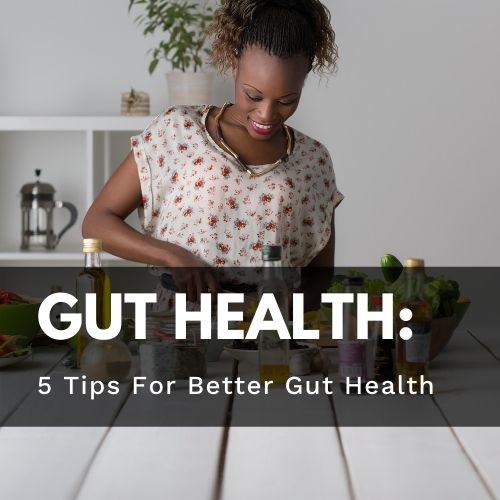Your Cart is Empty
COLLECTIONS:
SPECIAL OFFERS:
LEARN:

All About Lectins
April 22, 2019 3 min read
You may have heard of lectins before, but what are they exactly?
Lectins are proteins that are naturally found in most plants, but are predominantly found in grains and legumes. They act as a protector from external pathogens, pests, and insects (1,2).
Because of their protective mechanisms, some people are putting lectins to blame for certain health issues such as digestive distress, fatigue, or inflammation, but we can’t put the blame entirely on lectins alone.
Lectins and Our Health
Before we dive into the impact lectins can have on our health, know that not all lectins are bad or cause adverse reactions for people.
In fact, some lectins can actually be beneficial for our health (3).
When individuals have problems with lectins, it could be for various reasons. One being their resistance to digestion.
Some people may feel gastro-intestinal distress, such as bloating, after consumption of foods containing lectins.
This could be due to lectins being resistant to digestive enzymes.
When this occurs, lectins aren’t broken down like other foods, and enters the stomach unchanged (4,5).
In addition, due to their binding abilities, lectins can interfere with the absorption of key nutrients such as calcium and iron, and also cause damage to the gut lining. This may lead to nutrient deficiencies or other health complications later on (4).
Should We Avoid Them?
Lectins may be harmful if consumed in large amounts due to their negative impact they can have on the gut microbiome.
Although they are widespread, roughly 30% of the foods we contain have significant amounts of lectins, therefore making it fairly simple to avoid foods that contain the highest amounts of lectins if you need to (7,8).
If you’re experiencing health problems such as digestive issues, brain fog, fatigue, or inflammation, it may be helpful to avoid lectins or implement ways to reduce exposure.
If you aren’t, you may still be able to consume lectins sporadically and not have any issues.
Foods High in Lectins
Although lectins are found in a variety of foods, they are significantly higher in the following foods:
- Soybeans
- Wheat products, including flour, pasta, breads, and crackers
- Legumes such as beans, peas, lentils, and peanuts
- Nightshade vegetables such as potatoes, tomatoes, eggplant, and peppers
If you’re concerned about lectin exposure or experiencing health complications, try removing or reducing exposure of these foods to see if that helps.
Ways to Reduce Exposure
- Fermentation:This process involves beneficial bacteria digesting many of the harmful substances. Research has found that fermentation may reduce lectin exposure up to 95% (9).
- Sprouting: This method involves soaking a food item for several hours or days to help decrease lectin content. The longer something is sprouting for, the more lectins are deactivated, making it easier to digest nutrients such as Vitamin C, iron, and zinc (10).
- Pressure Cooking: This method involves cooking food at a high pressure, or heat. The higher heat helps to cook the food faster, as well as help destroy lectins in most foods.
- Boiling: Another method that involves high heat is boiling. This is when water is heated to its boiling point. One study found that the most effective way to remove lectins was a combination of soaking and boiling (11).
Conclusion
Lectins are found in a variety of foods and are highest in about 30% of the foods we eat including wheat, soybeans, nightshades, and legumes.
Not all lectins are bad for our health, and not everyone has a negative reaction after consuming them.
If you do feel you have health complications that could be tied to lectins, try removing or reducing exposure, and see if symptoms improve.
________________________________________________

Autumn Enloe is a registered dietitian in Minnesota. She has a private practice where she focuses on helping women take care of themselves through proper nutrition, supplement and lifestyle adjustments. She provides remote nutrition coaching and frequently posts free nutrition content and recipes at her website: www.autumnenloe.com. In her free time she enjoys chasing around her toddler, laughing with her husband, creating recipes in the kitchen, and practicing yoga.
Leave a comment
Comments will be approved before showing up.
Also in Health
Subscribe
Sign up to get the latest on sales, new releases and more …
Join the Utzy Naturals Club!
Sign up and get the latest on sales, new releases, and more...










